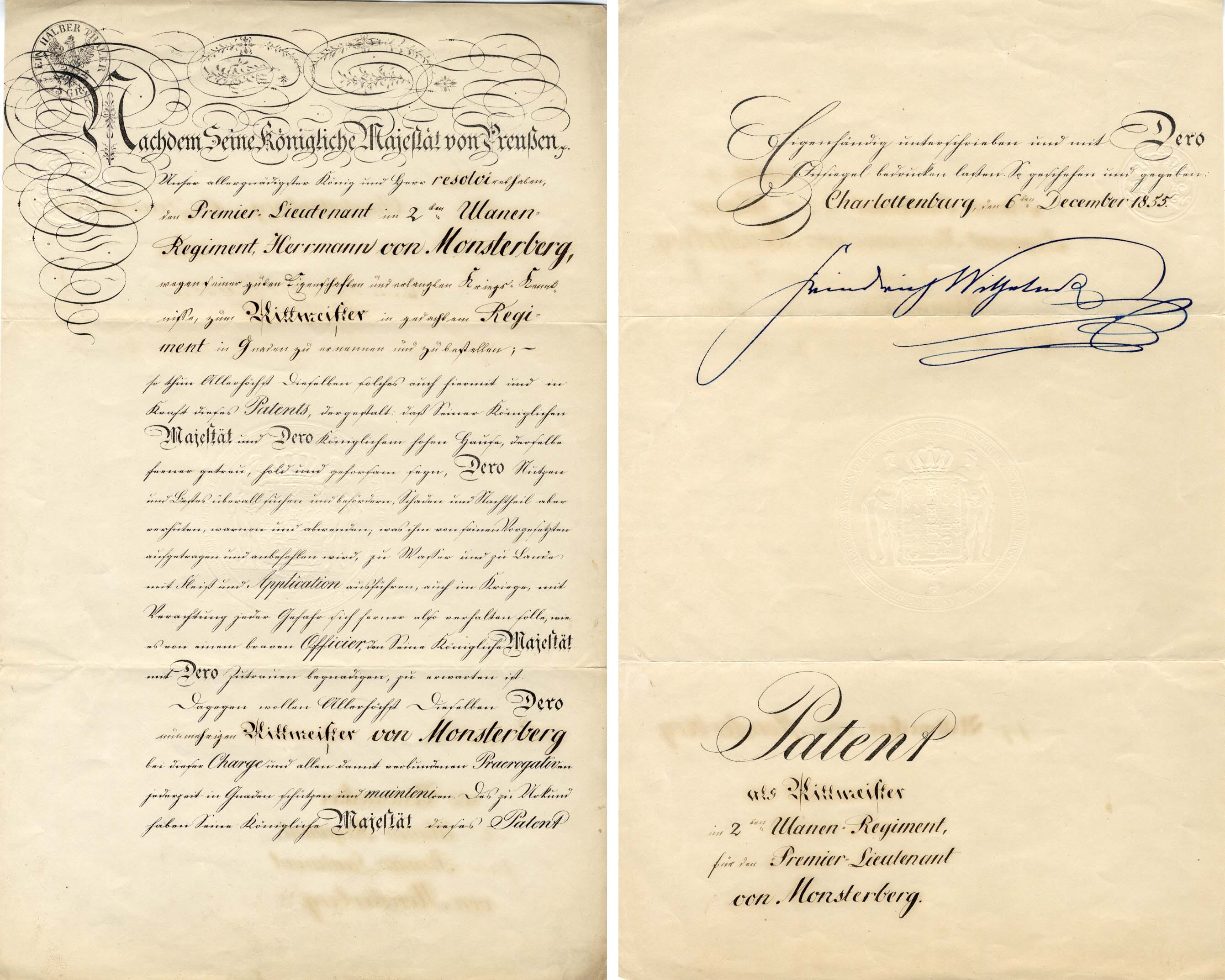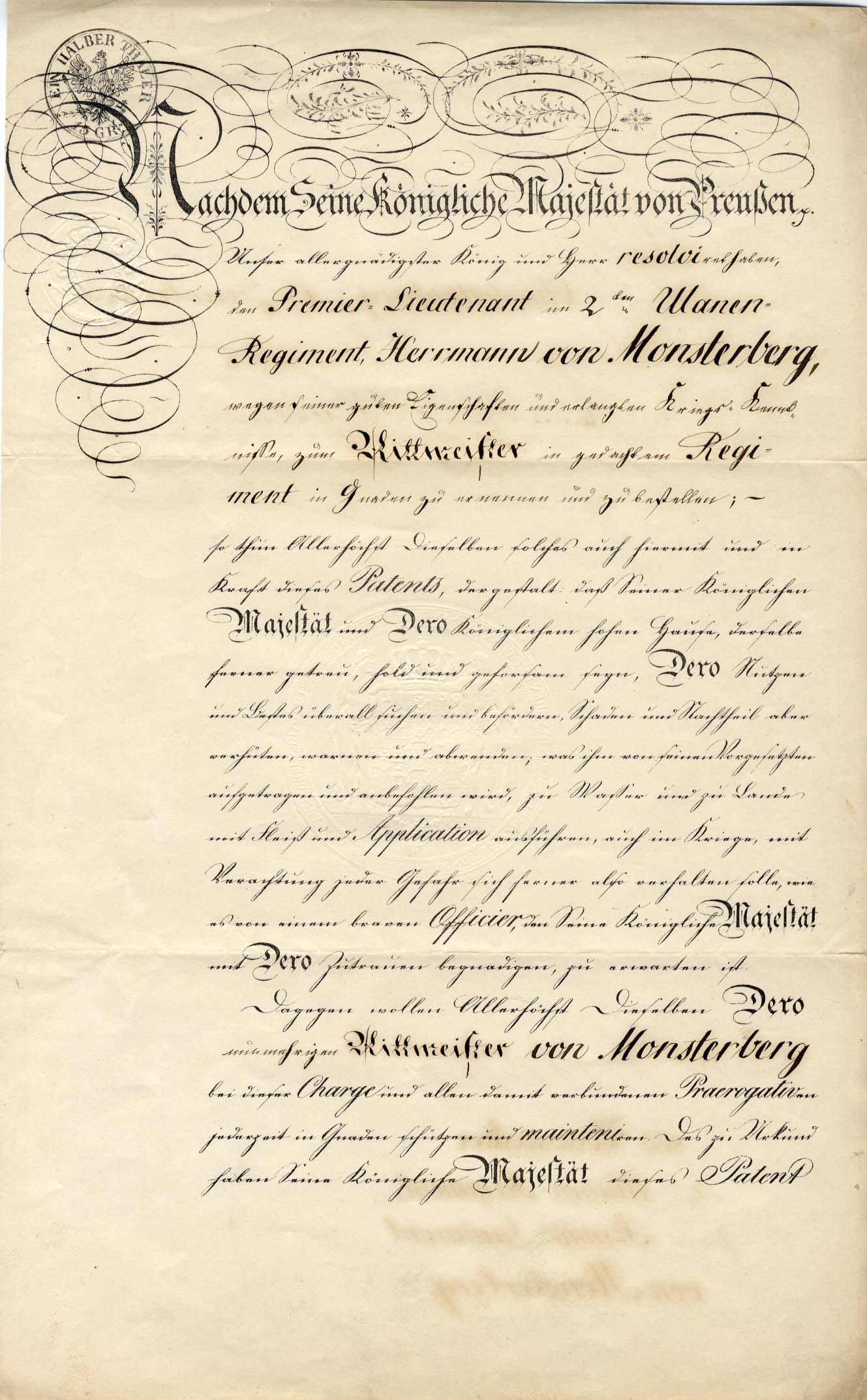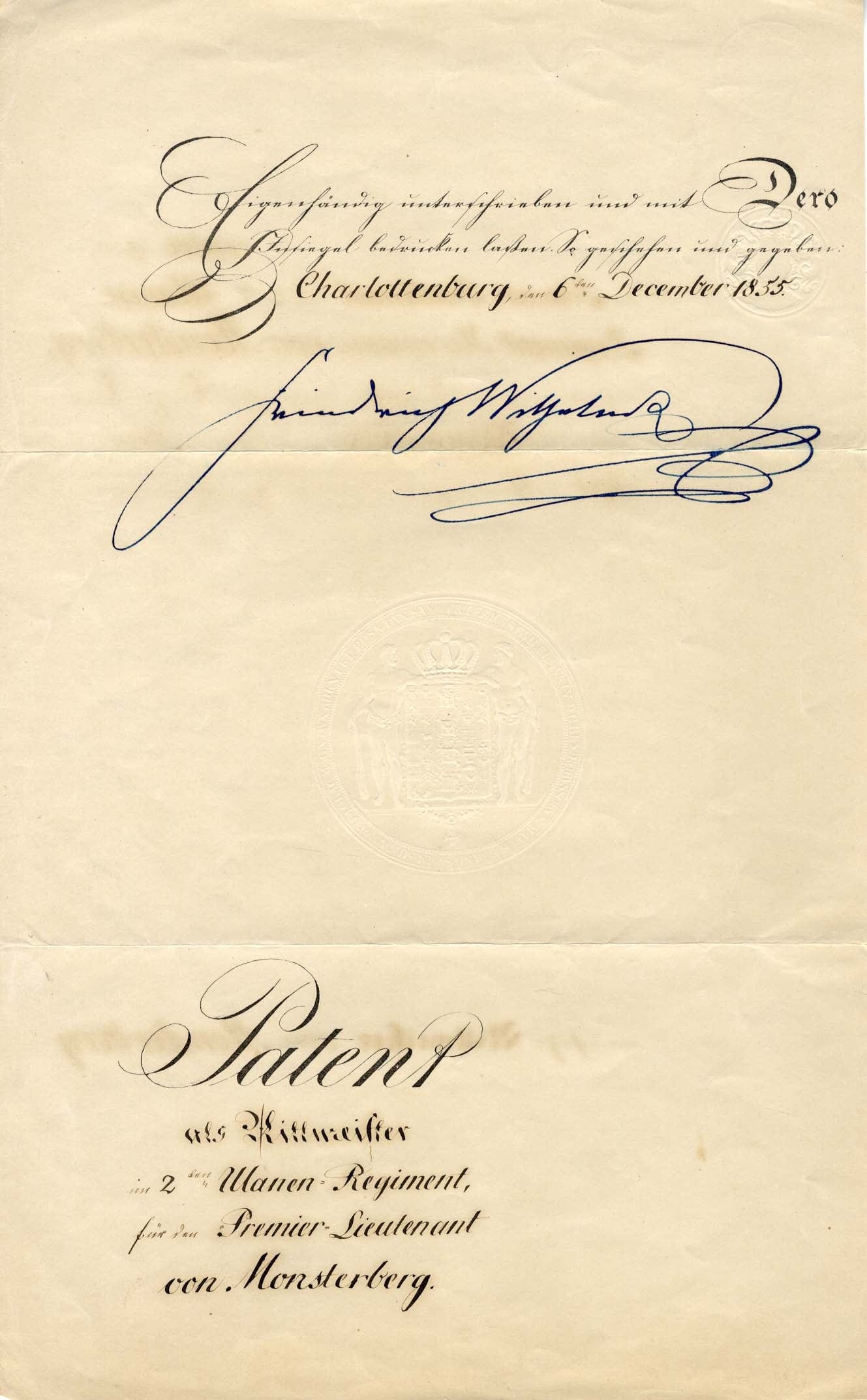Description
Document (with official embossed seal) signed, 1 1/2 pages (both sides), 9 x 14,25 inch, Charlottenburg (Berlin), 6.12.1835, in German, Patent as `Rittmeister im 2ten Wanen-Regiment für den Premier-Lieutenant von Monsterberg` (Cavalry Captain in the 2nd Wanen Regiment for the Premier Lieutenant of Monsterberg), signed by Frederick William IV in dark ink "Friedrich Wilhelm R", with two horizontal letter folds (slightly torn to the edges), browning, very mild creasing to the edges - in fine condition. Accompanied by portrait pictures.
Plus d'informations sur la personne
Profession:
(1795-1861) King of Prussia from 1840 to 1861.
Year of Birth: 1795
Certificat d'authenticité
Toutes nos pièces sont vendues avec un certificat d'authenticité. Si une pièce se révèle être erronée ou si vous n'aimez pas un autographe, vous récupérerez votre argent toute une vie.
Paiement et sécurité
Vos informations de paiement sont gérées de manière sécurisée. Nous ne stockons ni ne pouvons récupérer votre numéro de carte bancaire.



